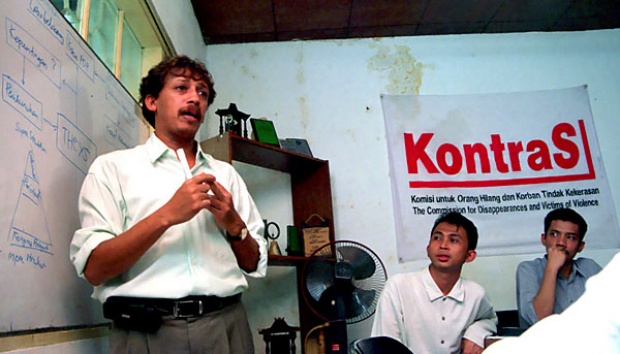Unresolved After 20 Years: Amnesty International Urges Action on Munir’s Assassination
JAKARTA, RAKYAT NEWS- The september 7, 2024, marks two decades since the assassination of Munir Said Thalib, a dedicated human rights activist whose killers have yet to face justice, according to Amnesty International Indonesia.
“Munir’s murder was not an ordinary crime but an extraordinary one, carried out systematically with strong indications of high-level state involvement, particularly by intelligence officials who abused their power, including through certain government-affiliated flights,” said Usman Hamid, Executive Director of Amnesty International Indonesia.
“Our law enforcement capabilities should not be doubted; no matter how complex the crime, it can be uncovered. Unfortunately, this capability is hindered by a political reluctance to pursue legal action to resolve this case. There are still legal avenues, including police investigations and judicial reviews,” Usman added.
Usman acknowledged the comments of Komnas HAM Commissioner Hari Kurniawan, who informed the media that the pro-justicia investigation into Munir’s case is ongoing, involving the collection of evidence and witness testimonies.
Komnas HAM and various human rights organizations have repeatedly urged the Attorney General to act on Komnas HAM’s investigation findings, including calling for the establishment of an ad hoc human rights court by the President and the DPR. However, political will remains absent. Even if Komnas HAM completes its investigation, its results will still depend on the government’s willingness to act.
On September 7, 2004, Munir died from a lethal dose of arsenic on a Garuda flight from Jakarta to Singapore to Amsterdam. Despite efforts by the Fact-Finding Team, the National Police, the Attorney General, and the courts, the case remains unresolved since the end of 2008.
The establishment of the Fact-Finding Team (TPF) on Munir’s death in 2004 through Presidential Decree No. 111/2004 was a crucial step in uncovering the murder. The TPF report named other individuals whose roles and legal responsibilities still need to be investigated.
Regrettably, the government has never released the TPF report, despite the mandate of Presidential Decree No. 111/2004. On October 10, 2016, the Central Information Commission (KIP) requested the government to publish the report, but the TPF documents were reported missing.
On October 12, 2016, the Ministry of State Secretariat admitted it could not release the final TPF report due to the missing documents. After public pressure, President Joko Widodo instructed Attorney General Muhammad Prasetyo to locate the missing TPF documents, but no results were achieved.
On January 28, 2021, the Indonesian Ombudsman revealed that the original TPF investigation documents on Munir’s death were still missing.
“The disappearance of the TPF documents itself highlights the country’s lack of political will to reopen Munir’s case. This situation is both unbelievable and unacceptable,” said Usman.
Besides the TPF results, the government has also failed to resolve the outcomes of police, prosecutor, and court investigations. At the time, there were clear indications of the main perpetrators, but the case remains unresolved.
The motive behind Munir’s murder is linked to his brave efforts to reform Indonesia’s security system and civilian control within its democracy. Before his death, Munir actively criticized various legislative proposals and public activities. Unfortunately, some individuals opposed these changes and resorted to murder.
Two decades have passed, and the state still has a legal obligation to address past serious human rights violations, including Munir’s case.
The Joko Widodo administration, which promised at the start of its term to resolve this case, has yet to take concrete steps toward fulfilling this promise. This inaction underscores the state’s reluctance to deliver justice for Munir, his family, and countless other human rights victims.
“We continue to urge the state to take decisive and transparent legal action to thoroughly investigate Munir’s murder,” said Usman.
“Munir remains a symbol of resistance against injustice and abuse. Two decades after his death, we still demand the same—truth and justice. The state must awaken from its prolonged slumber.” (Uki Ruknuddin)



























Tinggalkan Balasan